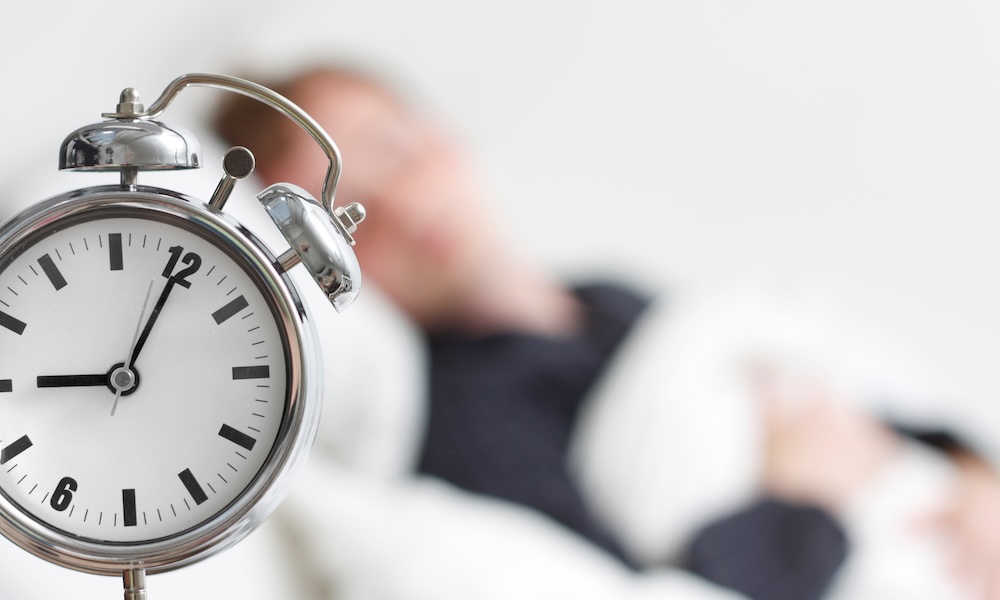The Connection Between Sleep Hygiene and Health
Did you know that studies have shown serious sleep deprivation can have the same effects on your judgement, reaction times, and decision-making abilities as being drunk? According to the CDC, being awake for 17 hours can lead to cognitive and motor impairments equivalent to a blood alcohol content (BAC) of 0.05%, while going for 24 hours without sleep is comparable to a BAC of 0.10%! And just like with alcohol, individuals often underestimate or deny how impaired they are.
Maybe you’re one of many people out there thinking, “Well, no, I don’t sleep much, but it’s okay. I get by.” The truth is that it’s not okay, and you don’t have to live like that. The solution could be as easy as improving your sleep hygiene.
We all know that sleep is important, but many of us treat it like a hobby instead of a daily necessity. Skimping on rest might seem harmless when you’re trying to get through a late-night work project or one more episode of your favorite show, but the truth is that your body and mind pay for it. Your sleep hygiene (the set of habits and environmental tweaks that set you up for quality rest) directly impacts everything from your immune system to your mental health.
At Mountain View Vital Medicine, we see sleep as one of the most powerful tools available for healing. Lack of it often reveals the deeper root causes of health issues.
What Is Sleep Hygiene, Anyway?
Sleep hygiene is just a fancy term for the choices you make around sleep. Think of it as brushing your teeth, but for your brain. It includes your bedtime routine, your sleep environment, and the behaviors you bring into those final hours before bed. Good sleep hygiene helps your body transition smoothly into rest. Bad sleep hygiene, on the other hand, can keep your brain buzzing like a phone that won’t stop pinging you with notifications.
The Body’s Nightly Repair Shop
While you’re asleep, your body isn’t just checking out. It’s hard at work repairing tissue, balancing hormones, and strengthening your immune system. Studies show that poor sleep is linked to higher risk of heart disease, diabetes, obesity, and even a weakened vaccine response. When you consistently get good rest, your body has the chance to clean up cellular damage, regulate metabolism, and keep inflammation in check. It’s like sending your body to the mechanic every night so it doesn’t break down on the highway.
The Sleep-Mood Connection
Sleep and mental health have a two-way relationship. Poor sleep can increase anxiety, depression, and irritability, while those same conditions can make it harder to sleep in the first place. If you’ve ever felt more fragile after a rough night, you’ve experienced this firsthand.
Rest is your brain’s chance to process emotions, strengthen memory, and restore focus. Without it, stress feels heavier, problem-solving gets harder, and even small setbacks can feel completely overwhelming. This is why improving sleep hygiene is an important cornerstone of mental health care.
Why Routines Matter
One of the biggest mistakes people make is treating bedtime like a moving target. Your body has an internal clock that thrives on rhythm. Going to bed and waking up at consistent times reinforces your natural sleep-wake cycle. Add in a calming pre-bed routine, like reading a book, gentle stretching, or a few minutes of meditation, and you create signals that tell your body it’s time to wind down. Contrast that with scrolling on your phone in bed, which blasts your brain with blue light and convinces it you should still be awake. Spoiler: your brain will always lose that battle.
Creating a Sleep-Friendly Environment
Your bedroom should feel like a sanctuary, not a command center. Cool, dark, and quiet conditions support deeper rest. If noise is an issue, white noise machines or even a fan can help. Reserve your bed for sleep and intimacy only, so your mind doesn’t start linking it to work, TV shows, or social media marathons. Over time, your brain will associate your bed with one thing: restorative rest.
When Sleep Issues Point to Something Deeper
Sometimes, poor sleep hygiene isn’t the main problem. Sleep disorders like sleep apnea, restless legs syndrome, or hormonal imbalances can sabotage rest even when you’re doing everything right. This is where a holistic approach makes all the difference. At Mountain View Vital Medicine, we look for the underlying causes of your insomnia, whether it’s stress, nutrient deficiencies, or a medical condition, and use both naturopathic and pharmaceutical options to support healing.
Clearing the Path for Restful Nights
Improving sleep hygiene can improve your rest, but even more importantly, it gives your body and mind the foundation they need to thrive. Quality sleep strengthens your immune system, sharpens your focus, steadies your mood, and protects long-term health. Those benefits are definitely worth investing in.
If you’ve been struggling to get the rest you need, it may be time to look deeper. Check out the Mountain View Vital Medicine website, explore our resources, or contact us to set up an appointment. Together, we can find the root cause and clear the way for your body’s natural ability to heal.

